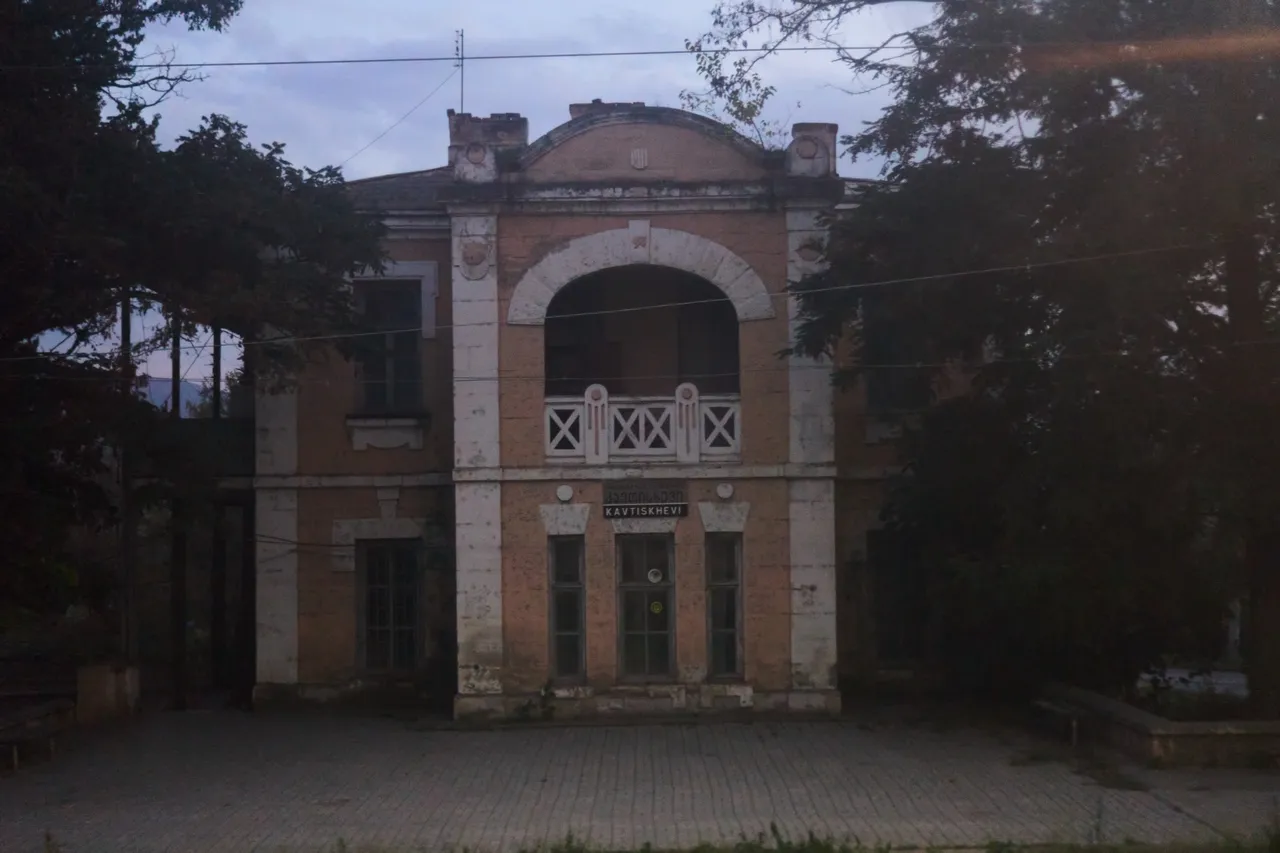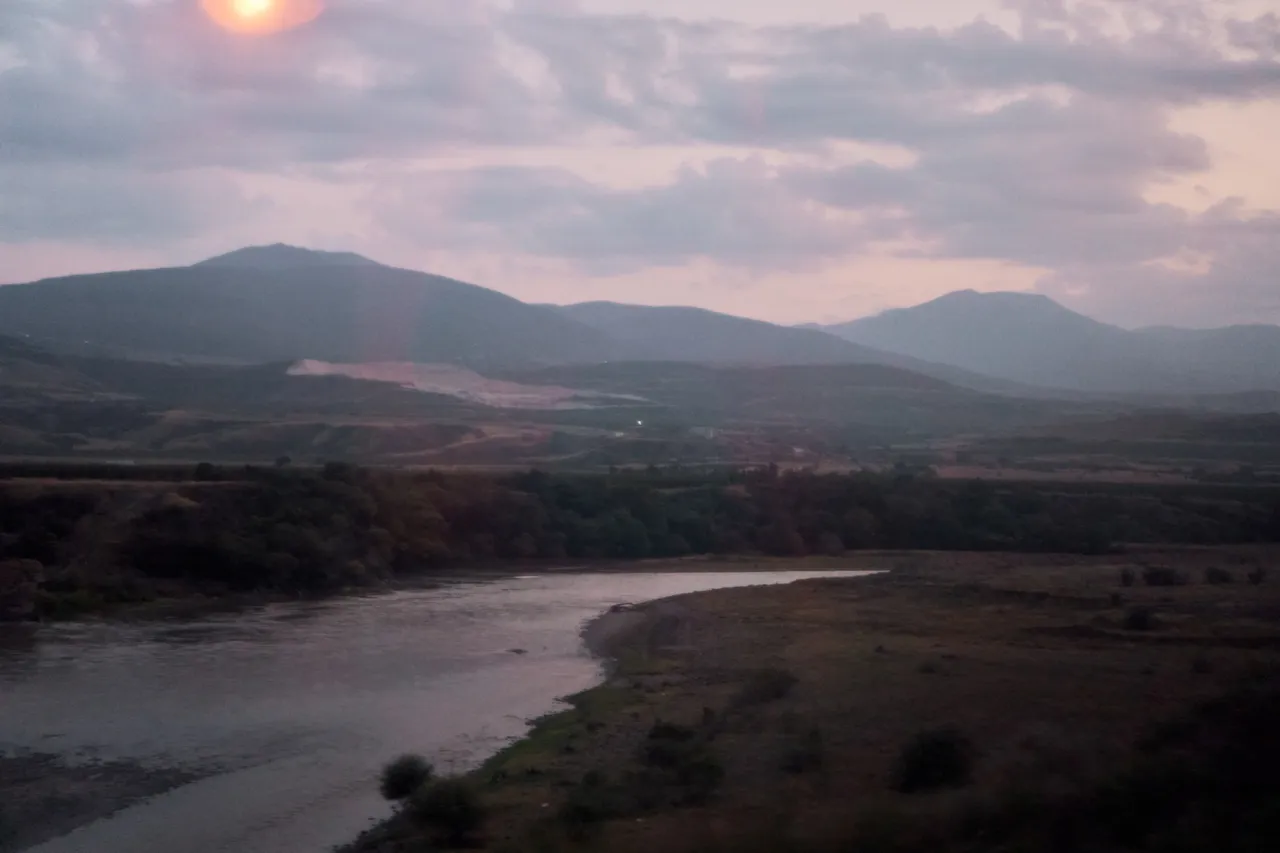The sun began to set as the rail in the horizon led to more open land. Villages with smoke rising above into the gradient remaining light set off a peaceful atmosphere. Simple lifestyles so close to a chaotic city of endless noise and developments. I felt the want to explore these places, as I always do. Partially hoping the train would stop at these locations for just a little while longer than they did. Allowing for me to get off and just have a little roam around with the camera before pressing on. I continued to see dogs by the rail, running up from the darkness towards the light, ready to accept whatever goods the people getting off would share. One particular sight left an impact on me for some reason, and it's an image I managed to capture and feature here in this post: the woman sitting by the rail, not really doing anything. Not waiting for anyone, and just relaxing with the dogs of the village. It felt old, cinematic, riddled with depth. Something as a photographer I've come to notice, particularly from having invested such stupid amounts of time into filmmaking and cinema in the past. I could feel the raw feeling of life in the sight, that simplicity of a life that is so rarely seen. Perhaps all too familiar with the sights of smartphones everywhere and rarely seeing people just sitting out somewhere enjoying the atmosphere.

Industry continued to be at the forefront of the sights to come. We'd travel through the natural landscapes, large rivers flowing through as the train weaved over and around them. That rackety sound of the rail beneath causing the odd jolt here and there. The sun continued to set, giving off more of a gradient tone. Colours of pink, blue and some purple, mixed with the little bits of white and grey in the clouds ahead. We stopped off at a destination that felt incredibly industrial, large towers and structures overwhelmed the nearby scenery. Many people got off at this location, to which I assumed this was more of an industrial town on the way to Gori. Gori was one of the first major destinations ahead, and this is a larger town that is also the birthplace of Stalin. I wanted to check out this place some day, primarily for its history, to see if Gori took a stronger pride in its history than Tbilisi did, to which they actively reject that side of things. That place is scheduled for another trip with more time. At this point, I could see the tiredness on the faces of those still on the train. Workers with more dirt on their clothes and wrinkles on the skin. Not necessarily from age but from hardworking bodies. Eyes began to shut, less communication between those travelling. And after Gori, the train began to empty quite rapidly.
Along the road, we pulled somewhere remote. A clear village that was incredibly small. Oddly its largest feature sat by the rail: a large football court with a tall fence. Huge flood lights pouring light down onto the players. It was such a strange thing to see this mixture of modern development within a space that had nothing else really going on. And this was a somewhat common feature along the way. Another stop led us to some strange outskirts of another village, to which there was a large empty tennis court and modern outdoor gym. To give you perspective on what this space was actually like, a lone cow stood in the gym part, and casually just urinated while looking into my soul as the train doors opened at the stop. Nobody got on, nobody got off. And this was a common theme as the train headed more into the remote areas and along the route to Borjomi. It was odd to see such development in these remote places, the idea of what governments and politicians think people in remote areas want and need. They throw in their weird outdoor gyms and tennis courts for the population that's mostly aged and already on their way out. With newer generations having already made up their minds that they'll head over to Tbilisi or elsewhere.

This disconnect in generations felt quite visible with each stop. Some places more isolated and traditional. The old architecture still left untouched along the rail. Old beautiful buildings that would've been markets, ticket offices, and waiting rooms for the more frequent trains back in the day. After all, Borjomi in particular was a hub for domestic tourism. A place within the Soviet Union known for its resort nature, and its various sanitariums that would offer a nice and healthy escape from things for its more elite citizens. It makes sense that along the way, especially with industry in these areas, that there would've been a rise in architecture then. To bring some beauty and development to the areas to give the workers and those living there the things they need. In some ways I guess that is still present with the acts above, just lacking in awareness more. Anyway, the train pressed on. A ragged woman would walk up and down the train and try to sell off drinks and snacks to people. She didn't work for the train, she was just trying to make a few extra Lari along the way. It felt dated. The good kind of dated. Like entering a past in which we didn't just have pop up shops and such everywhere. Instead people would sell whatever they wanted wherever.

The ride kept me looking around. Looking at the types of people that would be arriving to Borjomi. Seeing the few remaining, people getting off more and more. The more youthful ones were the only ones still heading to the small town. Clear that they were Russian or Georgians, a little bit of tourism at the end of summer, to visit the town that was known for being a brand of mineral water in this part of the world. At this point, most of the train was empty. And darkness swallowed up all sights beyond the windows.